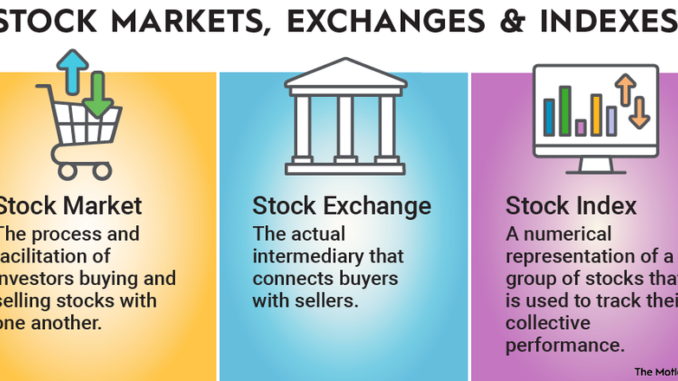
The stock market is a complex and dynamic marketplace where investors buy and sell shares of publicly traded companies. It plays a crucial role in the economy by providing companies with access to capital while offering individuals and institutional investors the opportunity to grow their wealth. Below is an overview of the stock market, how it works, and its significance.
The stock market refers to the collection of markets and exchanges where securities, such as stocks, bonds, and other financial instruments, are bought and sold. It is where companies list their shares through an Initial Public Offering (IPO) to raise capital for expansion and development. Investors can then purchase and sell these shares on the stock exchanges.
The two main types of stock markets are:
- Primary Market: Where new securities are issued. Companies first sell shares to the public through IPOs in this market.
- Secondary Market: Where investors buy and sell securities from one another. This includes major exchanges like the New York Stock Exchange (NYSE) and NASDAQ.
Key Participants in the Stock Market
- Investors: Individuals or institutions that buy stocks with the goal of making a profit.
- Brokers: Professionals or firms that facilitate the buying and selling of stocks.
- Market Makers: Firms that ensure liquidity in the market by continuously buying and selling stocks.
- Regulatory Bodies: Agencies such as the Securities and Exchange Commission (SEC) that regulate and oversee the stock market to maintain fairness and transparency.
How the Stock Market Works
The stock market operates through exchanges where buyers and sellers come together. Stocks are listed on these exchanges, and investors place orders to buy or sell. The price of a stock is determined by supply and demand dynamics. When more people want to buy a stock, its price goes up; when more people want to sell, the price goes down.
Stock Orders:
- Market Orders: An order to buy or sell a stock at the best available price.
- Limit Orders: An order to buy or sell a stock at a specific price or better.
- Stop Orders: An order to buy or sell a stock once it reaches a certain price.
Types of Stocks
- Common Stocks: Represent ownership in a company and come with voting rights at shareholder meetings. Holders of common stocks may receive dividends, which are a portion of the company’s profits, but they are not guaranteed.
- Preferred Stocks: Represent a higher claim on a company’s assets and earnings. Preferred stockholders typically do not have voting rights, but they receive fixed dividends and have a higher claim on assets in case of liquidation.
Importance of the Stock Market
- Capital Formation: The stock market allows companies to raise capital, which can be used to expand operations, develop new products, and increase employment.
- Wealth Creation: For individual investors, the stock market provides a platform to accumulate wealth through capital appreciation (increase in stock value) and dividends.
- Economic Indicator: The performance of the stock market often reflects the health of the economy. A rising stock market typically signals economic growth, while a declining market can indicate economic slowdown or recession.
Risks and Rewards
Investing in the stock market offers significant potential for returns, but it also carries risks. Stock prices can be volatile, influenced by factors such as company performance, economic conditions, and geopolitical events. While some investors may experience high returns, others may face significant losses.
To mitigate risk, many investors diversify their portfolios, investing in a mix of stocks across different sectors or using mutual funds and exchange-traded funds (ETFs) that pool investments into a variety of assets.
Conclusion
The stock market is an essential component of the global economy, offering opportunities for both businesses and investors. It allows companies to raise funds for growth and expansion, while also providing individuals with a platform to invest and grow their wealth. While it offers the potential for significant rewards, investors must carefully consider the risks involved and make informed decisions based on their financial goals and risk tolerance.